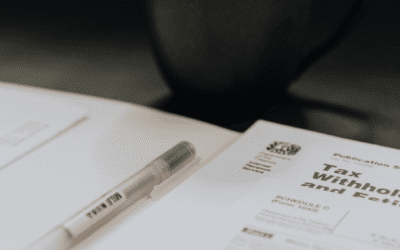Frankfurt has one of the best gold coin stores in Europe. It’s not just that the place is in central Frankfurt (ironically not that far from the ECB) or that walking into it reminds you of a scene from The World is Not Enough.
It’s because the service there is some of the best we’ve seen in Europe.
And while the European Union is now awash in information sharing, Germans and German-speaking countries, generally, are a bit more private than the rest of Europe about the gold-buying experience.
The Germans know something about the value of money, including how to save it.
The 500 euro note was mainly created as a concession to Germans who wanted a comparable replacement for the 1000 Deutsche mark banknotes they used to keep at home.
In Germany, gold and precious metals are treated by many like real money, not barbarous relics as they are across the pond.
However, Germany is not always the best place in Europe to buy gold and silver.
In fact, much of Europe is at a distinct disadvantage when it comes to buying precious metals because the governments there apply VAT (essentially, sales tax) to the purchase of some investment-grade metals.
As much as the Germans value their secrecy, they don’t value the ability to buy certain precious metals without a heavy markup.
Buy Gold and Silver in Europe
Frankfurt has one of the best gold coin stores in Europe. It’s not just that the place is in central Frankfurt (ironically not that far from the ECB) or that walking into it reminds you of a scene from The World is Not Enough.
It’s because the service there is some of the best we’ve seen in Europe.
And while the European Union is now awash in information sharing, Germans and German-speaking countries, generally, are a bit more private than the rest of Europe about the gold-buying experience.
The Germans know something about the value of money, including how to save it.
The 500 euro note was mainly created as a concession to Germans who wanted a comparable replacement for the 1000 Deutsche mark banknotes they used to keep at home.
In Germany, gold and precious metals are treated by many like real money, not barbarous relics as they are across the pond.
However, Germany is not always the best place in Europe to buy gold and silver.
In fact, much of Europe is at a distinct disadvantage when it comes to buying precious metals because the governments there apply VAT (essentially, sales tax) to the purchase of some investment-grade metals.
As much as the Germans value their secrecy, they don’t value the ability to buy certain precious metals without a heavy markup.
European VAT on Precious Metals
Throughout the European Union, investment-grade gold bullion and certain approved coins are exempt from VAT as they are considered investment vehicles.
Some countries tax any capital gains earned from the sale of those gold coins. That’s why living in and transacting your metals purchases in a country with no capital gains tax has its advantages.
Buying silver in Europe is another story. Silver bullion is not VAT exempted in the European Union, and rates vary from country to country.
The lowest rates in continental Europe are in Switzerland, where VAT on silver is 7.7%. In the European Union, rates can be substantially higher. Germany actually has one of the lowest rates in the EU at 19%.
The United Kingdom, home to a number of easy-to-use online gold dealers and numerous offshore gold vaults, has a 20% VAT on silver. So does Austria, where our beloved Austrian Philharmonic coins are minted and available directly from the Mint.
The Netherlands VAT on silver is 21%, Slovenia has a 22% VAT, while Poland assesses a 23% tax, and Finland tops the charts at 24%.
How to Avoid VAT When Buying Silver in Europe
It’s not easy to get around paying VAT when buying silver in Europe.
The first option is buying silver in Norway. Gold and silver bars carry 25% VAT; coins are VAT exempt. While Norway is not a member of the European Union (adding to its appeal), it is a member of the European Economic Area (EEA), which means Europeans have certain rights to move goods back and forth.
It is more complex than buying silver online from a Norwegian dealer and having it shipped to Germany. In most cases, such a transaction would be subject to tax on the receiving end.
And if you live in a more insolvent European nation, you might not want it shipped to you anyway.
Another option was to purchase it from Estonia, though the rules changed since we first published this article, and now Estonia levies 20% VAT on such sales.
In short, VAT is hard to avoid.
If you’re not a European, we stand by our assertion that Singapore is the world’s best place to store precious metals. If you’re unsure what type of bullion to buy, you can read my suggestions.
Asia is preferable to buy gold and silver because premiums over the spot price are lower there (especially in Hong Kong and Singapore).
Doing business in Europe is expensive, and operations are often not as streamlined as those in the Asian wealth hubs.
However, holding some of your precious metals in Europe can be a wise move. Switzerland has long been an excellent place to store gold, and Austria offers one of the world’s only anonymous storage facilities.
Ensuring you don’t pay VAT when you don’t have to is as important as diversifying your affairs to legally avoid any kind of other tax. Just make sure you follow the correct procedures to avoid seeing your metals seized.
If you want to buy gold and silver or sell it without triggering heavy tax liabilities, get in touch with us, and we can handle all the complexities while you sit back and relax.









